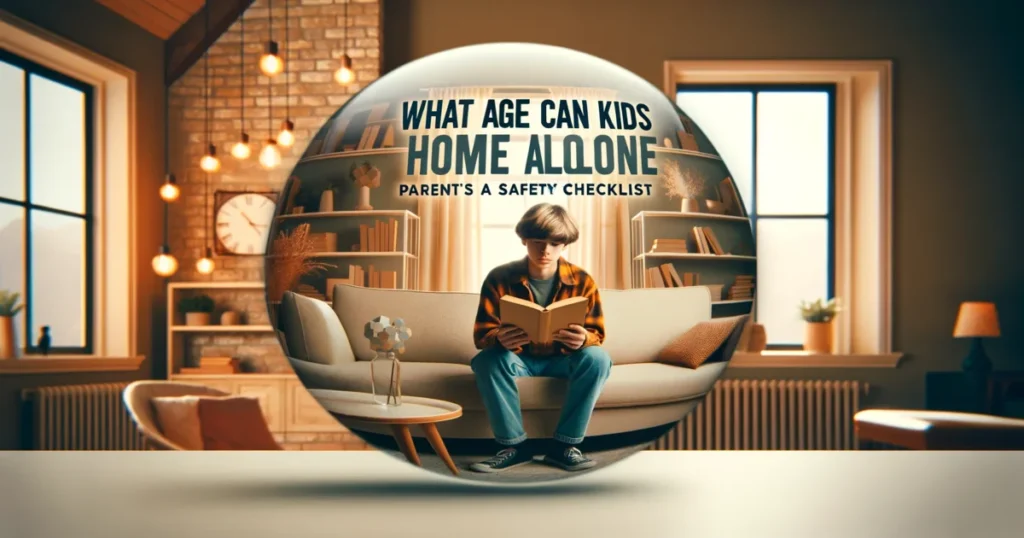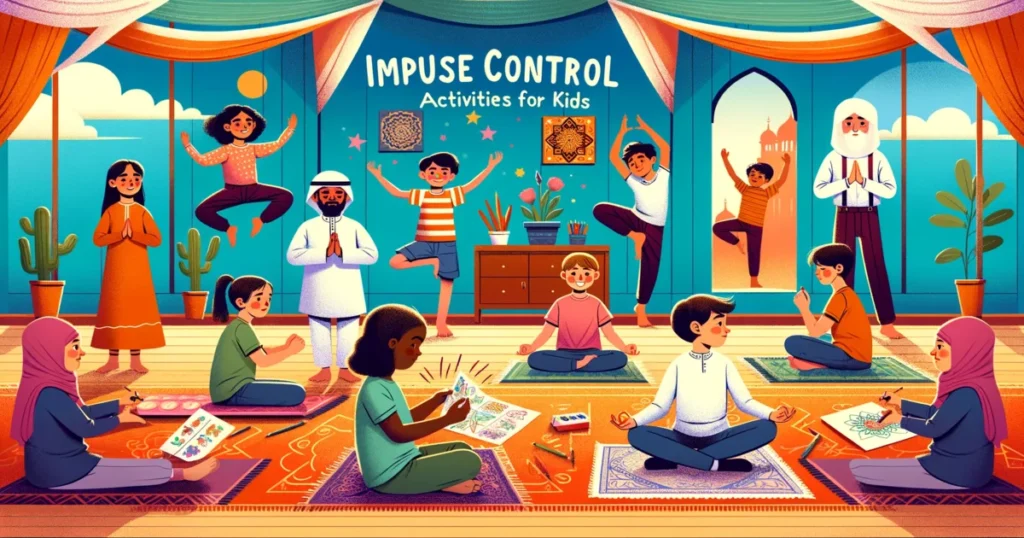Introduction what age can kids stay home alone:
As parents, one of the toughest questions we face is, “What age can kids stay home alone?” It’s a big step towards independence for your child, and it’s not just about a number. It’s about maturity, safety, and readiness. “What Age Can Kids Stay Home Alone: A Parent’s Safety Checklist” is your guide to making this decision with confidence. We’ll walk through expert-backed strategies and simple tips to ensure when the time comes, both you and your child feel prepared for this new phase of independence.

Understanding Your Child’s Maturity Level:
The first and most important step is to think about how mature your child is. Remember, it’s not just about their age. Consider if they can follow rules and how they might react in unexpected situations. Think about whether they can stick to a plan, like finishing homework or chores, when you’re not around to remind them.
Tip: Begin by leaving them alone for short periods. Watch how they handle small tasks and responsibilities during these times. This will help you judge if they’re ready for longer periods alone.
Legal Guidelines and Age Recommendations:
It’s also crucial to be aware of the legal side of things. Different areas have different rules about the right age for kids to stay home alone. Some places have specific ages set as guidelines, while others offer general advice.
Tip: Do a bit of research to understand the rules in your area. You can find this information online or by contacting local child welfare authorities.
Safety Skills and Emergency Preparedness:
Ensuring your child knows how to stay safe at home is extremely important. Teach them basic safety measures, like what to do in case of a fire, a power outage, or if they hurt themselves. They should also know how and when to call for emergency help.
Tip: Practice different emergency scenarios with your child. For example, teach them what to do if they smell gas or if there’s a stranger at the door.
Setting Ground Rules and Expectations:
Having clear rules is essential for your child’s safety. Discuss and agree on what’s allowed and what isn’t when they’re home alone. This could include guidelines on cooking, internet use, and having friends over. Consistent rules help your child feel secure and clear about your expectations.
Tip: Make a list of these rules and place it somewhere visible, like on the fridge, so your child can easily remember and follow them.
Communication Plan for what age can kids stay home alone:
Keeping in touch is vital. Your child should know how to reach you or another trusted adult at all times. Discuss with them how often they should check in with you, especially if something unusual happens or if they feel uncomfortable.
Tip: Teach them various ways to contact you, such as through a home phone, a cell phone, or internet-based messaging apps. Establish specific times for regular check-ins.
Home Security and Childproofing:
Make sure your home is a safe environment. Check that all doors and windows can be securely locked. Consider installing a home security system for added safety. Also, keep potentially dangerous items, like medicines and sharp objects, out of reach.
Tip: Do a walk-through of your home to spot any safety hazards and address them. This might include securing heavy furniture to walls or making sure harmful chemicals are locked away.
Building Independence and Confidence:
Staying home alone can be a great opportunity for your child to develop independence and confidence. Encourage them to take responsibility for small tasks, like making their own snack or managing their time. This helps build their self-esteem and prepares them for more responsibilities.
Tip: Praise your child for responsible behavior when home alone. Positive reinforcement will encourage them to continue behaving responsibly.
Emergency Contact Information:
Having a list of emergency contacts is a must. This list should include phone numbers of neighbors, relatives, local emergency services, and yourself. Ensure your child knows where to find this list and how to use it.
Tip: Place the list in multiple, easily accessible locations around the house, such as in the kitchen, near any landline phones, and in their bedroom.
Regular Check-ins and Updates:
Establish a routine for check-ins. This not only keeps you informed about your child’s well-being but also reassures them that they can reach out for help if needed. It’s a way for them to feel connected and safe, knowing that you are just a call away.
Tip: Use these check-in times to talk about their day, listen to any concerns they might have, and offer guidance.
Trust and Communication:
Building trust and maintaining open communication with your child is incredibly important. Encourage them to share their experiences and feelings about staying home alone. Listen to their thoughts and address any fears or worries they might have.
Tip: Regular conversations about their experiences when they are alone at home can help you gauge their comfort level and provide necessary support.

Table: What age can kids Stay Home alone Recommendation
This table provides a detailed breakdown of age-appropriate responsibilities and guidelines to consider when deciding if your child is ready to stay home alone. It’s a helpful tool to assess their readiness and ensure they are equipped with the necessary skills and knowledge.
| Age Group | Responsibilities and Guidelines |
|---|---|
| 6-7 years | Supervised Short Stays: Brief periods of independence while an adult is on the premises. Learning basic safety rules. |
| 8-10 years | Basic Home Alone Skills: Can answer the phone, understand basic first aid, and follow a routine. No cooking or using appliances unsupervised. |
| 11-13 years | Intermediate Skills: Capable of preparing simple meals, handling minor emergencies, and following a more complex routine. Introduction to basic home security measures. |
| 14-16 years | Advanced Independence: Can manage more complex tasks, oversee younger siblings, and handle most emergencies. More freedom in decision-making and time management. |
| 17+ years | Full Independence: Prepared for extended periods alone, can manage all household responsibilities, and make informed decisions about emergencies and safety. |
Facts and Figures:
Understanding the broader context is key when deciding what age kids can stay home alone. Here are some enlightening facts and figures:
- Legal Age Guidelines: Most states suggest that children 12 years and older may be left home alone, but this varies widely. Some states have no legal age requirement, leaving the decision entirely to parental discretion.
- Child Development Studies: Research indicates that children’s ability to stay home alone successfully is linked to their developmental stage rather than their exact age. This means that maturity and individual capability are crucial factors.
- Independence Growth: Studies have found that kids who start staying home alone at a suitable age tend to develop better independence and problem-solving skills. They learn to manage time, handle unexpected situations, and gain confidence.
- Parental Employment Trends: With increasing numbers of dual-income families, the average age at which children start staying home alone is gradually decreasing, highlighting the need for clear guidelines and safety measures.
FAQs for what age can kids stay home alone:
Q: At what age is it generally acceptable for a child to stay home alone?
While this can differ based on where you live, many experts suggest that around 12 years old is a reasonable age to start considering it. However, it’s more about how mature and ready your child feels, rather than just their age.
Q: How can I make sure my child is safe when they’re home alone?
Teach them basic safety rules and emergency procedures. Make sure they know how to contact you and emergency services. Also, set clear rules about what they can and cannot do while you’re not there.
Q: What are some signs that my child might not be ready to stay home alone?
If your child is often scared when left alone for short periods, struggles to follow basic rules, or can’t handle small responsibilities, they might not be ready. It’s important to gauge their comfort and capability realistically.
Conclusion of what age can kids stay home alone:
Deciding what age kids can stay home alone is a significant step in your child’s growth and your journey as a parent. By understanding your child’s maturity, knowing the legal age guidelines, and ensuring they’re equipped with the necessary safety skills, you can make this decision with confidence. Remember, it’s not just about leaving your child alone; it’s about preparing them for independence and responsibility.

Use this guide as a starting point, and always trust your parental instincts and knowledge of your child’s capabilities.
Important Points:
- Assess maturity and readiness, not just age.
- Know your local legal age guidelines for leaving children home alone.
- Equip your child with safety skills and clear rules.
- Regular check-ins and open communication are essential.
- Foster independence and responsibility for a successful transition.
Want to learn more about Parenting? Click here to read our easy tips on our blog!
- How to Stop Yelling at Your Kids : 10 Peaceful Parenting Strategies
- Strategies for Early Childhood Early Intervention: Tips for Parents
- Tips for Understanding and Managing Child Behavioral Problems
- How Educational Toys Benefit Child’s Learning | Child Growth Toys
- Top 10 Proven Positive Parenting Secrets | Positive Parenting Tips


